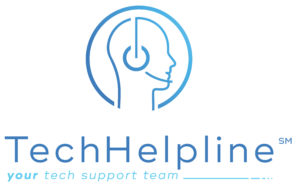Article provided by the Tech Helpline
The persistence of the pandemic means working from home will continue for some time to come. With most of the nation’s largest school districts announcing virtual learning plans for the fall, real estate agents, like many others, face additional work-life balance challenges.

While some school districts are providing students the tech tools they’ll need for remote learning – from iPads to Chromebooks — others are allowing families to use the tech resources they have.
Kids today are more tech-savvy than ever. According to a 2019 Common Sense Media report, 95% of families with children now have smartphones, up from 63% in 2013, and 41% in 2011. Nearly half of children (42%) ages 0 to 8 have tablets, up from 7% four years prior.
For agents suddenly saddled with several students connecting from their home, sharing your work computer might be a reality. But how can you share it safely?
Here are some things you can do to protect your work – and share your computer with kids learning from home.
Create Separate Accounts: Whatever operating system you use – Windows or Mac – allows you to set up separate accounts. You should do this for everyone who shares your work computer. This will give them a personal login and protect your work files from being accessed. Just remember not to share your password so someone won’t accidentally sign into your account.
Set a Schedule: If more than one person is sharing a single computer, you need to make sure you have access to it when you need it. Use a family calendar – such as Google Calendar – to block out the times that your kids need the computer for classes and homework, and when you need it for work.
Employ Ground Rules: You need to establish ground rules for computer use to make sure your kids know what is expected of them when using a shared computer. There are also ways to adjust your computer settings to have a “kid-safe” mode to protect your work computer better. Unplanned scheduling conflicts can emerge, so plan for it. Think about priorities and alternative options in advance. If something does come up, you can avoid panic and adapt to an unexpected change more easily by having rules already in place.
Establish a Central Location: Having your computer set up in a set location can make it easier for everyone. If you are using a laptop, it’s still a good idea to establish one location. It will save time in connecting needed accessories for learning – such as an external monitor, mouse, a video conferencing light, and a microphone. It will save everyone time and avoid a scramble to connect everything at the last minute if your laptop is roaming your home.
Make your computer kid-safe: The most popular computing operating systems – and web browsers — have built-in settings that can restrict, for example, what your kids can see when they search online. Microsoft even offers a Family Safety Account. The point is you need to not only talk about how your work computer can be used but also ways it should not be used. If you want an added layer of protection, there are software programs built to make nearly every digital device safer for your kids to use – and safer for your work computer.
Protect your computer: Windows 10 and Mac both offer exceptional built-in protection from computer viruses and malware. If you want to be extra safe and you don’t already use a virus protection program, you can add one to protect your work computer and your files better, no matter who is using it.
Everyone is experiencing more stress these days, so having an organized plan on how to share your work computer with your kids can make things a little less hectic.
And remember, for the 60 percent of real estate agents in North America who have access to Tech Helpline, you can always reach out for help for any computer issue you are having at work – or home.





